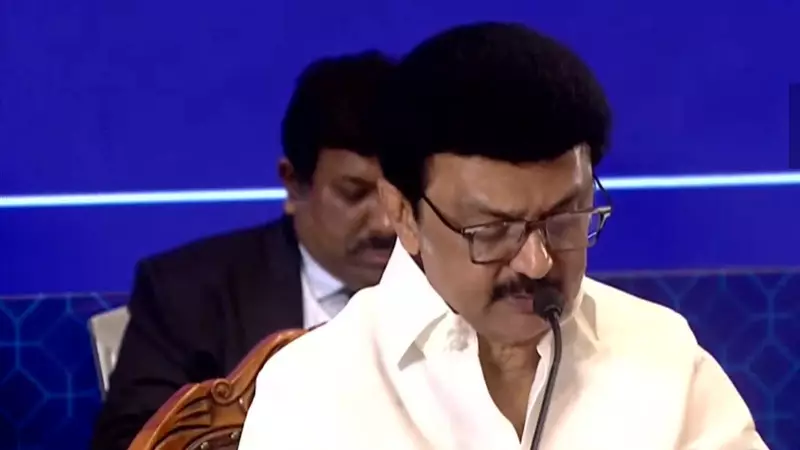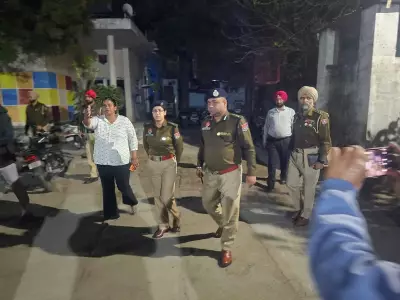
Tamil Nadu Government Clashes with Centre Over Metro Rail Projects
Tamil Nadu Chief Minister M K Stalin launched a sharp attack on the central government Wednesday, accusing it of deliberately blocking Metro rail projects for Coimbatore and Madurai as political retaliation. The strongly worded statement came during Prime Minister Narendra Modi's visit to Coimbatore, signaling escalating tensions between the state and central governments.
Stalin declared that the state would "fight and win" this battle for development, framing the issue as a matter of Tamil Nadu's rights versus the Centre's discriminatory policies.
The Population Criteria Controversy
The Union government recently returned and effectively rejected the Detailed Project Reports (DPRs) for Metro Rail systems in both Coimbatore and Madurai. The rejection was based on provisions of the Metro Rail Policy, 2017, which mandates an urban agglomeration of at least 20 lakh (2 million) people to qualify for a new Metro project.
According to the last Census conducted in 2011, Coimbatore's population stood at 15.84 lakh, while Madurai's was below 15 lakh. Both cities fell short of the mandated criterion. However, the Tamil Nadu government argues these figures are outdated and don't reflect the rapid growth both cities have experienced over the past decade.
Stalin's Accusations of Political Bias
In his statement, Stalin didn't mince words, calling the Centre's approach "disgraceful" and accusing the BJP-led government of practicing "revenge politics" against opposition-ruled states.
"A government exists to serve people without bias. Yet the Union BJP government treats Tamil Nadu's democratic choice as a reason to take revenge," Stalin wrote. He pointed out that BJP-ruled states get Metros for smaller Tier II cities while opposition-ruled States are deprived of similar projects.
The Chief Minister reminded that the Centre had "attempted to stall the Chennai Metro" in the past, but the state government overcame those obstacles. "With the same determination, we will secure the Metro Rail that Madurai and Coimbatore need for their future growth," he asserted.
Details of the Proposed Metro Projects
The rejected projects represented significant infrastructure investments for both cities:
For Coimbatore, the state government had submitted an ambitious phased proposal including two major corridors—Avinashi Road and Sathyamangalam Road—stretching 44 km at an estimated cost of Rs 9,424 crore. Early works were targeted for 2025, pending central approval.
For Madurai, planners conceived a 32 km corridor from Thirumangalam to Othakadai, with 27 stations, three of them underground. The project's estimated cost was Rs 11,366 crore, with feasibility studies conducted between 2022 and 2024.
Centre's Counterarguments and Alternatives
Officials in New Delhi have questioned the ridership projections in the Tamil Nadu DPRs, describing them as "unrealistic". The Centre noted that Coimbatore's estimated ridership of 5.9 lakh exceeded even the actual ridership projections for Chennai Metro in 2025.
The Union Housing and Urban Affairs Ministry recommended alternatives such as expanded bus systems and Bus Rapid Transit System corridors, arguing these were more aligned with the cities' current sizes and needs.
Historical Context and Future Plans
Both Metro projects have been pursued aggressively for over a decade, with city planners, industrial associations, and elected representatives consistently arguing that the rapidly growing industrial region of Coimbatore and the historic, densely populated Madurai require major capacity upgrades in public transportation.
The Tamil Nadu government and several urban planning experts have pushed back against the Centre's decision, pointing out that cities like Agra, Patna, and Bhopal received Metro clearance at similar population levels. The state sees this discrepancy as evidence of political discrimination.
The state government has argued that the Centre's position ignored the economic importance of Coimbatore and Madurai, both of which have seen surging growth in manufacturing, textiles, education, and tourism sectors.
Looking forward, the state is planning to revise and resubmit the DPRs with updated demographic data once the delayed Census process resumes. International lenders, including the Asian Infrastructure Investment Bank, have indicated interest in supporting the Coimbatore project, suggesting the state might explore alternative funding mechanisms if central approval continues to be withheld.
Stalin concluded his statement with a rallying cry: "Tamil Nadu will fight! Tamil Nadu will win!" - setting the stage for continued political confrontation over infrastructure development in the state.






